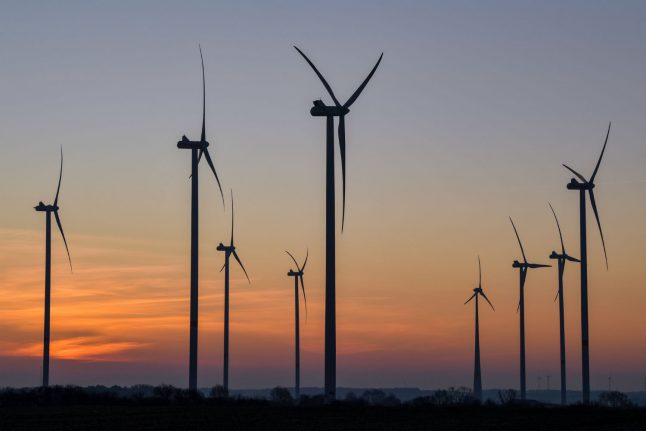Germany is one of the countries trying to lead the way in terms of environmental policy, and debate on the subject will continue to dominate the news over the next few years.
READ ALSO: Five ways Germany makes you greener without even noticing
Here are ten words which can help you to get to grips with discussions, both in the press and with your friends and colleagues.
Umweltschutz
This compound word meaning “environmental protection”, was reportedly invented on the November 7th, 1969, in the interior ministry of the former West German government.
The roots of the current environmental movement (Umweltbewegung) can be traced back to this era, when green activism began with protests in West Germany against aircraft noise and nuclear power plant plans in.
Treibhausgas
Das Treibhaus is the German word for greenhouse, so you can probably guess what Treibhausgas means.

Cars: a major contributor to greenhouse gases. Photo: DPA
Greenhouse gases are a major cause of global warming and are one of the key issues in the fight against climate change. In December, the EU pledged to collectively reduce greenhouse gas emissions to net-zero by 2050.
Verpackung
Verpackung (packaging) has been making a lot of headlines in Germany in the last couple of years. In January 2019, a new Verpackungsgesetz (packaging law) was introduced, requiring manufacturers to report their use of paper, glass and plastic and to contribute to recycling costs.
READ ALSO: Germany to ban single-use plastic shopping bags
There has also been a lot of focus on the overuse of packaging and many of the main German supermarkets are making efforts to reduce the amount of packaging used for their products.
Erneuerbare Energien
Erneubare Energien (renewable energies) are on the rise in Germany – last year, renewable energy sources made up just over 40 percent of energy production in the Bundesrepublik, overtaking coal. Renewable energy sources in Germany include solar, wind, biomass and hydroelectric power.
Mülltrennung
If you have lived in Germany for more than a few weeks, you should already know how seriously Mülltrennung (waste separation) is taken. Household waste is separated into four differently coloured bins and glass bottles must be taken to a local Mülltonne (waste container).
If you are still not sure what should go where – have a look at our article from earlier this month (recycling section).
Co2-Bilanz
This term, which translates literally as Carbon Dioxide Balance, is the German equivalent of the English term “carbon footprint”.
You can work out what your own personal carbon footprint is by using this online calculator.
Nachhaltigkeit
This German word for sustainability was first used by the forestry industry in the early 18th century due to an increasing national wood shortage.
Nowadays, the word is synonymous with green thinking and over the last thirty years it has become the guiding principle for political, societal and ecological action on the environment.
Abwasser
Abwasser, meaning “waste water”, refers to both household and industrial waste water, both of which have devastating effects on the environment.
READ ALSO: Wasserwende: Germany urges more people to drink tap water to protect the environment

An 'Abwasser' plant in Greifswald. Photo: DPA
Tierhaltung
The literal translation of this German word is “animal holding” but, in the environmental context, it is used to refer to animal farming, which is extremely environmentally inefficient.
In order to help the environment, people are advised to cut down on their Fleischkonsum (meat consumption).
Klimahysterie
The last word on this list was the “non-word of the year” 2019 and translates as “Climate Hysteria”. It is a word which has been used by Klimawandelleugner (climate change deniers) in an attempt to discredit the current environmental movement and to play down the seriousness of the threat posed by global warming.



 Please whitelist us to continue reading.
Please whitelist us to continue reading.
Member comments